Order is one of the eight major hierarchical taxonomic ranks in Linnaean taxonomy. It is classified between family and class. In biological classification, the order is a taxonomic rank used in the classification of organisms and recognized by the nomenclature codes. An immediately higher rank, superorder, is sometimes added directly above order, with suborder directly beneath order. An order can also be defined as a group of related families.
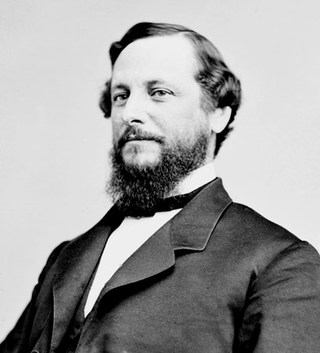
George Hunt Pendleton was an American politician and lawyer. He represented Ohio in both houses of Congress and was the unsuccessful Democratic nominee for Vice President of the United States in 1864.

Franz-Valéry-Marie Cumont was a Belgian archaeologist and historian, a philologist and student of epigraphy, who brought these often isolated specialties to bear on the syncretic mystery religions of Late Antiquity, notably Mithraism.
3rd Congress may refer to:

Paul Marie Ghislain Otlet was a Belgian author, entrepreneur, lawyer and peace activist; predicting the arrival of the internet before World War II, he is among those considered to be the father of information science, a field he called "documentation". Otlet created the Universal Decimal Classification, which would later become a faceted classification. Otlet was responsible for the development of an early information retrieval tool, the "Repertoire Bibliographique Universel" (RBU) which utilized 3x5 inch index cards, used commonly in library catalogs around the world. Otlet wrote numerous essays on how to collect and organize the world's knowledge, culminating in two books, the Traité de Documentation (1934) and Monde: Essai d'universalisme (1935).
Jean-Baptiste Accolay was a Belgian violin teacher, violinist, conductor, and composer of the romantic period. His best-known composition is his one-movement student concerto in A minor. It was written in 1868, originally for violin and orchestra.
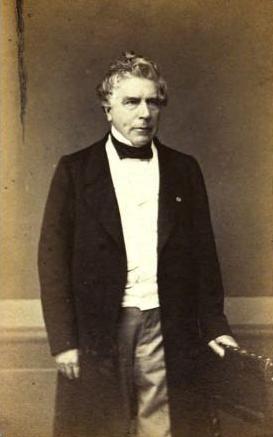
Charles Latour Rogier was a Belgian liberal statesman and a leader in the Belgian Revolution of 1830. He served as the prime minister of Belgium on two occasions: from 1847 to 1852, and again from 1857 to 1868.
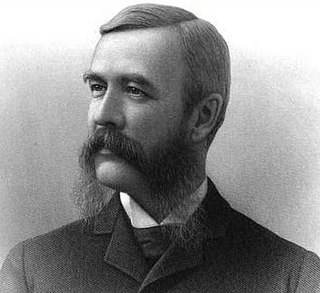
Charles Heber Dickerman was a Democratic member of the U.S. House of Representatives from Pennsylvania.
Darwin Asahel Finney was a Republican member of the U.S. House of Representatives from Pennsylvania.
The International Federation for Information and Documentation (FID) was an international organization that was created to promote universal access to all recorded knowledge through the creation of an international classification system. FID stands for the original French Fédération internationale de documentation.

Guillaume-Hippolyte Van Volxem was a Belgian lawyer and liberal politician.
A peace congress, in international relations, has at times been defined in a way that would distinguish it from a peace conference, as an ambitious forum to carry out dispute resolution in international affairs, and prevent wars. This idea was widely promoted during the nineteenth century, anticipating the international bodies that would be set up in the twentieth century with comparable aims.

Antoine Édouard Ducpétiaux was a Belgian journalist and social reformer.

The Second International (1889–1916) was an organisation of socialist and labour parties, formed on 14 July 1889 at two simultaneous Paris meetings in which delegations from twenty countries participated. The Second International continued the work of the dissolved First International, though excluding the powerful anarcho-syndicalist movement. While the international had initially declared its opposition to all warfare between European powers, most of the major European parties ultimately chose to support their respective states in World War I. After splitting into pro-Allied, pro-Central Powers, and antimilitarist factions, the international ceased to function. After the war, the remaining factions of the international went on to found the Labour and Socialist International, the International Working Union of Socialist Parties, and the Communist International.

The International Workingmen's Association (IWA), often called the First International (1864–1876), was an international organisation which aimed at uniting a variety of different left-wing socialist, communist and anarchist groups and trade unions that were based on the working class and class struggle. It was founded in 1864 in a workmen's meeting held in St. Martin's Hall, London. Its first congress was held in 1866 in Geneva.
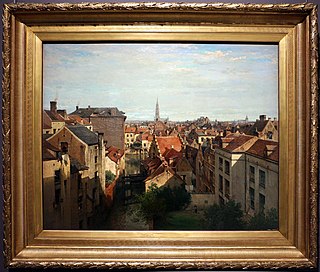
Events in the year 1868 in Belgium.
The Malines Congresses were a series of Catholic Congresses held in Mechelen, Belgium, with the purpose of bringing together Catholics with leading roles in all walks of life, on the model of the German Katholikentage. The first three, held in 1863, 1864 and 1867, had considerable cultural, social and political impact. They lay at the foundation of the future development of a Catholic Party in Belgian politics, as well as a nascent Social Catholicism. The first congress saw the establishment of the Guild of Saint Thomas and Saint Luke, which shaped Belgian Gothic Revival architecture and art education. The main organiser of the first three congresses was Édouard Ducpétiaux, who died in 1868. They were hosted in Mechelen by the archbishop, Engelbert Sterckx, who died in December 1867, although much of the practical management fell to Isidore-Joseph du Rousseaux, a teacher at the junior seminary where many of the sessions were held.
Events in the year 1935 in Belgium.
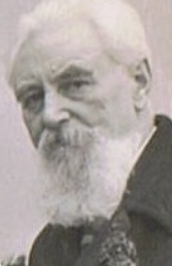
Ernest Nyssens was a Belgian homeopath, naturopath, theosophist and vegetarianism activist.

The Spanish Regional Federation of the International Workingmen's Association, known by its Spanish abbreviation FRE-AIT, was the Spanish chapter of the socialist working class organization commonly known today as the First International. The FRE-AIT was active between 1870 and 1881 and was influential not only in the labour movement of Spain, but also in the emerging global anarchist school of thought.










